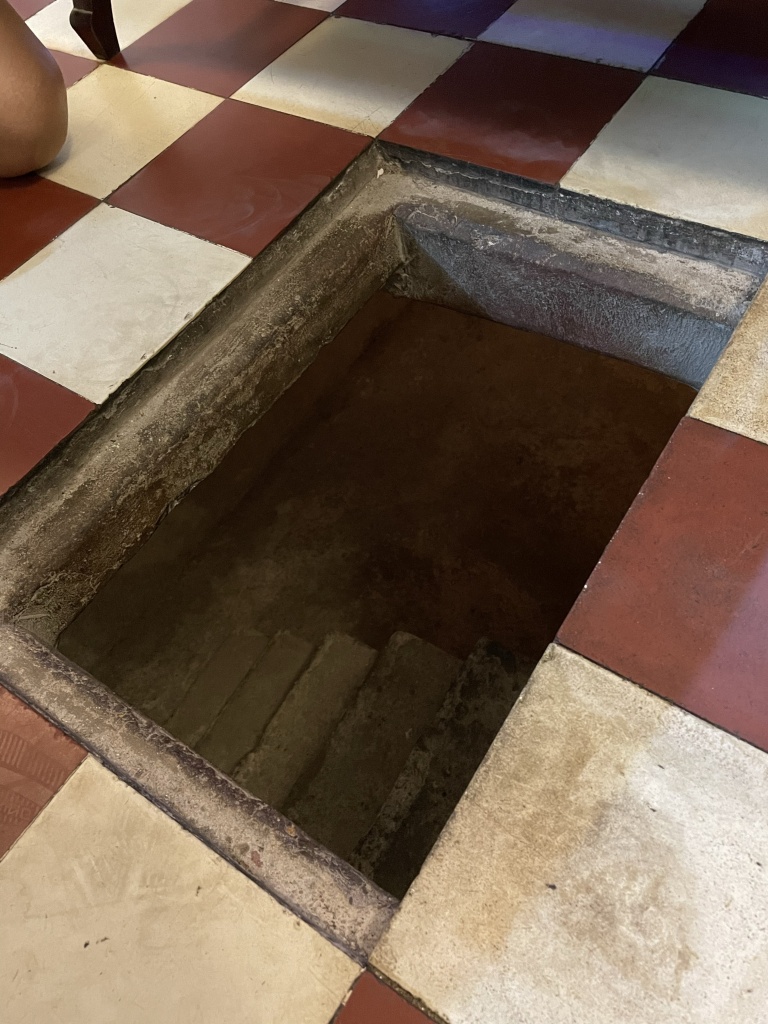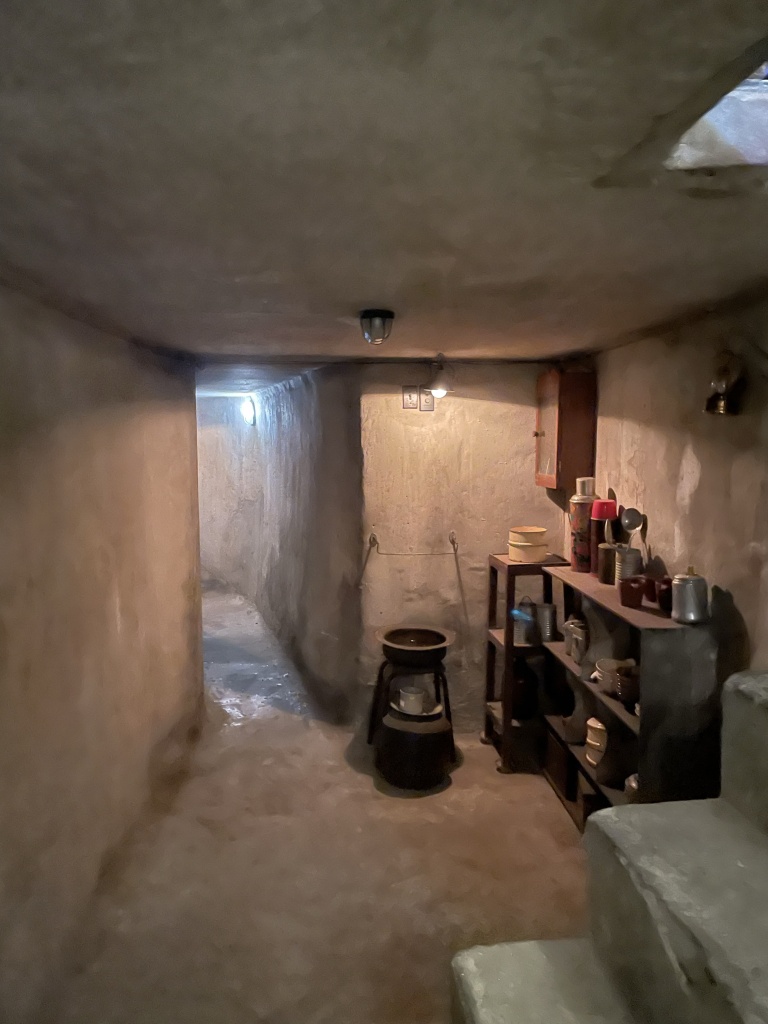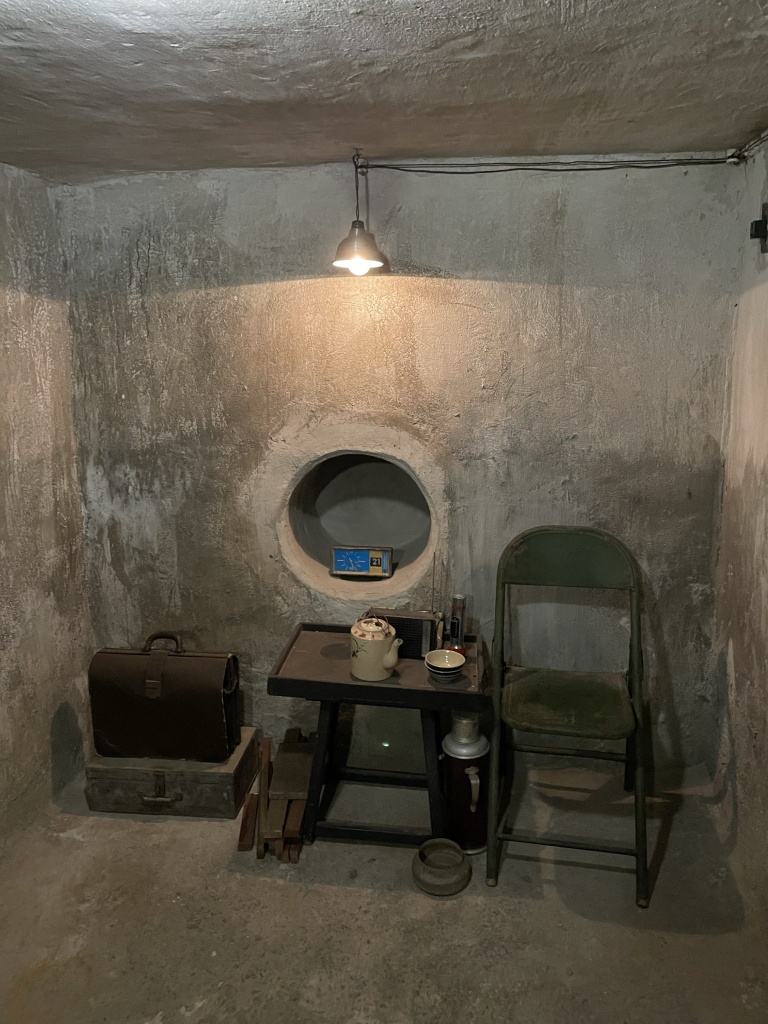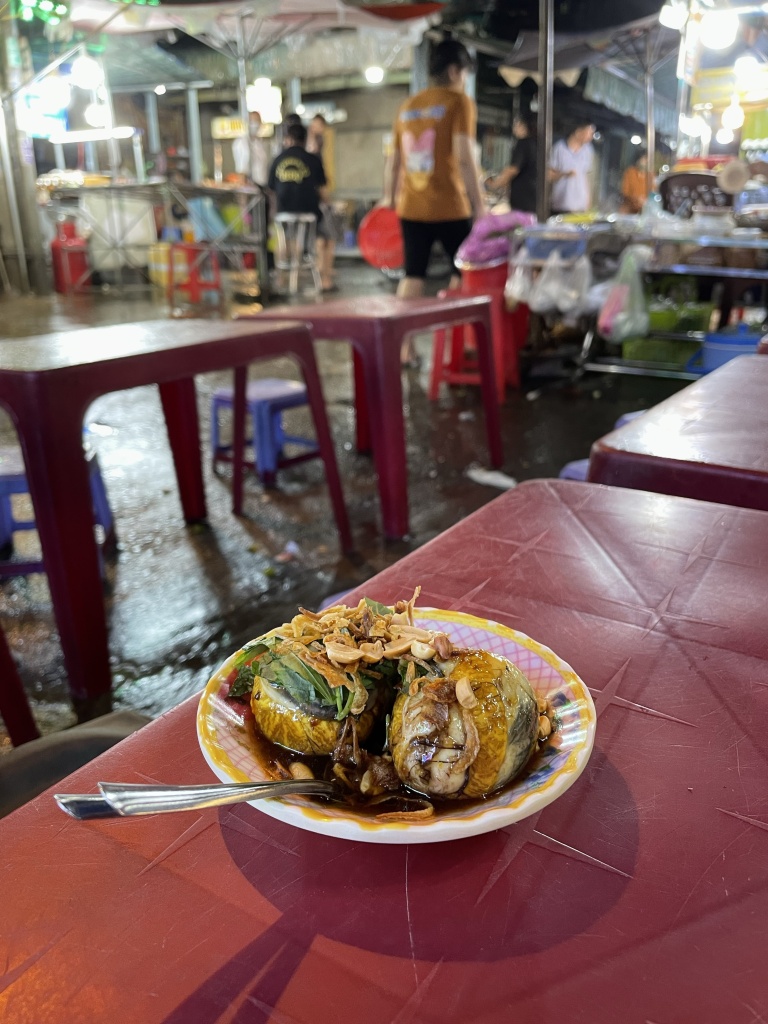Saigon in the Rain
by afatpurplefig

I am a newly-turned sucker for the wind in my hair. Tonight’s tour guide, Hieu, is immediately likeable. We shake hands upon meeting and, when asked how to pronounce his name, he flashes a big, warm smile and says, ‘Hieu…like Hugh Jackman!’. Dressed in shorts, t-shirt, and crocs, he feels like a neighbour, or perhaps a nephew. His scooter looks like the scooter he rides every day, likely because it is. The spare helmet is, as expected, too small, so I perch it on the back of my head…and we’re away.
Our first stop is at Thế Giới Tàu Hũ for pudding, made from silken tofu, coconut milk, and ginger syrup. Hieu tells me that this dish was historically made by women, for women, with tofu in Vietnam being seen as ‘women’s food’. Perhaps this contributes to me liking it so much. Or maybe I just enjoy beginning my extended dinner with a pudding. It is a stellar opener.


Pudding is soon followed by bánh khọt, or mini savoury pancakes, topped with seafood and quail eggs. I am relieved when Hieu tucks into them with me, after modelling his lettuce-wrapping technique. I have decided all foods should be wrapped – I love the ritual of selecting fillings and squishing them into a roll, then dunking them…and I especially love that Hieu nabs the last pancake.

Our next stop, Cà Phê Đỗ Phủ, is a remarkable little café in a District 3 alleyway. Hieu asks me if I can spot the entrance to its underground bunker, which I accept as a personal challenge, and compliments me when I am successful. This is what makes Hieu so special – he has likely hosted countless tours, but his sincerity makes me feel like the only person who ever found the damned entrance. It’s a gift.
‘Want to go down?’ he asks. I sure do.





He is a mine of information, chatting freely about Vietnamese history as we explore the bunker and a home that has been frozen in time on the upper levels. We sit on the upstairs balcony and I feel clever all over again after correctly guessing that I am drinking kumquat tea. It begins to pour with rain and, in that moment, I adore the combination of steamy raindrops, greenery, clinking ice, and the breeze from the fan oscillating behind me.
I make a pointed decision to embrace the rain.





As I hover in the café’s entrance, Hieu pulls a raincoat from beneath the scooter’s seat, and encourages me to cover myself with the back of it after I get on. I’m not sure what this means, so drape it over my lap and carry on as usual. We are soon part of the ever-shifting, ever-alert, jostling swarm of Saigon traffic, in the rain. ‘Can you see?’ Hieu calls back to me, ‘or are you under the raincoat?’

At the Nguyễn Thiện Thuật Apartment Area, Hieu parks the scooter, drapes his raincoat across its seat, and we cross the central square towards the stairs. I ask if it is safe. ‘The raincoat is, but the bike is not,’ he replies, ‘so the aunty is watching it for me.’ When I look back, I see a wisened Vietnamese woman leaning back on a plastic chair, keeping watch over the rows of scooters.

As we climb the concrete stairs, Hieu explains that the pungent odour is courtesy of the 23 stray cats that live here. I spot them around corners, lean and suspicious, and am relieved to hear they are fed by a local resident. Hieu explains the history of the building and shows me images of its brutalist, concrete cubes, soon after construction. ‘Two Netflix shows were filmed here,’ he tells me, ‘’Street Food Asia’, and ‘Saigon in the Rain’.’ Appropriate. We walk down the extended balconies and I resist the urge not to peer through the now-colourful window dressings. We pass a Samoyed nose, a trio of children – one of whom raises his hand for a high-five – and a rooster in a cage, awaiting his next tournament.



Hieu describes the strong sense of community. ‘Generations live together in the homes here,’ he tells me. ‘There is much drama, especially between wives and their mother-in-laws’.
We sit at a small table outside Bún Bò Huế, beneath the apartments, where I am presented with a bowl of beef noodle soup. Time stops. How is it possible that something so simple can taste so extraordinary? I slurp slowly here, because every spoonful raises a question. ‘This is the only thing the owner sells,’ Hieu explains, gesturing towards the a woman-who-knows-things sitting in a plastic chair behind me, ‘the broth has been cooked for eight hours’.

My insides emanate heat on the journey to our next stop, the Hồ Thị Kỷ flower market, and I am grateful that my perspiration is indistinguishable from the rain. My hair and clothing cling to me damply, as an important reminder that it is not a night for selfies. We wander through the neighbouring Cambodian street food stalls, stepping sideways into puddles to make way for scooters ridden by raincoats. I thump my forehead on a low-hanging awning.


‘Do you want to try snails?’ Hieu asks. I sure do.
We use wooden sticks to prise the snails, seasoned with pork, lemongrass, pepper and chilli, out of their shells. ‘You are 80% Vietnamese now,’ Hieu tells me. I sweat with pride. The stools in the market are about 30cm off the ground. To stand, I have to put my hands on the floor and push myself up. Fortunately, dignity is pretty much off the table at this point, and nobody cares anyway.



I agree to try a duck embryo. This will make me 100% Vietnamese, according to Hieu, and his good opinion is important. Two eggs materialise on a small saucer, served with tamarind sauce, a pair of tiny silver spoons, and, praise be, a Saigon beer. My first mouthful is of bones, knobbly and pliable, that do not go down easily. I try another section, eyes averted, but the boney mouth memory remains. Hieu awards me an 85%, polishes off the remaining embryos, and leads me instead to grilled beef, wrapped between betel leaves and around stalks of lemongrass.


As we stroll through the flower stalls, en route to the scooter, Hieu explains that the flowers are purchased mostly for weddings. ‘On Valentines Day, we go out for noodles,’ he adds. ‘Far better value,’ I agree.


Our final stop, for dessert, is at a street corner that boasts the tiniest stools of them all. The chè, or sweet soup, contains mungbean paste, taro, sweet potato, and seaweed mushrooms. It tastes far better than it sounds; warm, sweet, and unexpected. For a culture that doesn’t really ‘do’ dessert, it does well.



I haul myself up for the final time, and launch a heavy leg over the scooter behind Hieu.
At the front of the Airbnb, words fail me (as always, when it actually matters). Hieu presents me with a pair of cats, in honour of the Year of the Cat. ‘The male one turns his head,’ he tells me, ‘but don’t turn it too much, or it will fall off.’
If there are better parting words, I am yet to hear them.


